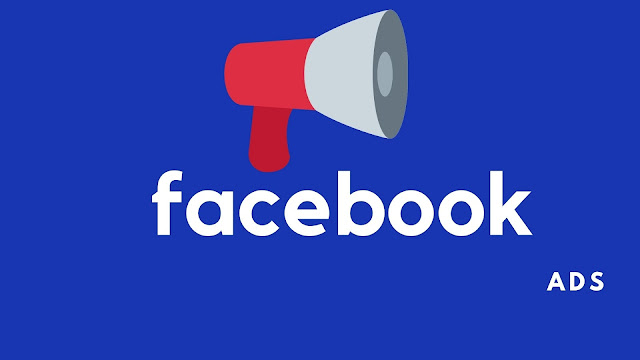How to make money on Robinhood?
What is Robinhood?
Robinhood is a popular commercial application.
The founders of this commercial application are Holden
Baiji and Vlad.
Robinhood provides universal access to financial markets.
Universal access means that people can invest any amount of money from
anywhere, at any time, at no cost.
I’m going to explore Robinhood’s monetization strategies
as well as their history and future plans. Let's start with how Robinhood was
founded.
History of Robinhood
After the financial crisis of the 2008 and 2011 the Occupy Wall Street
movement, many people lost faith in the financial system and access to
sophisticated equipment and resources were limited to the very rich.
So, Tenev and Bhatt were inspired to create a meaningful
way to empower both professional and first-time investors.
They first launched Robinhood in 2013, a mobile-first
commission-free brokerage application.
They first envisioned the app as a way to easily invest
in stocks and make it accessible to everyone, especially millennials.
However, it took their team more than a year to follow
the rules and get the Securities and Exchange Commission (SEC) approval and
become a FINRA member.
Waiting a year and doing more to improve didn't
disappoint as it only took them a year to skyrocket into the one million person
waitlist in their app.
They finally have a fun interface and enhanced features
in 2014 on Apple smartphones and tablets and relaunched their Android app in
2015.
How traditional brokerage makes money
Before we know how Robinhood makes money, we need to know
how other brokerages make money once.
I want an agent to buy and sell the stock.
The first task of a broker is to trade investors.
Brokers generally have two types of
discounts and full-service.
Discount brokers conduct business
only for investors. Here you are not paid to give advice. These agents in token
of charge between $ 5 and $ 15 per
trade.
Offers other services through
full-service money managers and financial planners. These brokers are paid to
give you advice. These brokers charge from $ 100 to $ 200 per trade.
Let's talk about how Robinhood makes
money.
1. Robinhood earns revenue from a premium subscription. They
offer a "gold collection" premium bank account starting at $ 10 per month with the following benefits:
The purchasing power of gold.
Robinhood Gold allows you to enjoy 2 times your purchasing
power so you can invest more and have access to your funds as soon as the stock
is sold. (For example, if you have $ 10,000 in cash, you
can take $ 10,000 more from Robinhood)
2. Robinhood makes money from Robinhood Gold, which includes
large instant deposits, professional research from Morningstar, access to
NASDAQ's second-tier market data and investments in margins.
Robinhood Gold starts at $ 5 per month. General brokerages charge interest on the margins
you use. Robinhood charges you for access to the margin service.
For example, if you request $ 1000 in the margin, you will pay a flat 5
monthly fee.
If you owe more than $ 1000 in the margin, you will pay 5% annual
interest on the amount above $ 1,000.
Here's an example of making money on
Robinhood margin (via Robinhood.com) calculated daily at the end of the day
margins you use for your interest. The daily interest rate is 5%
cloven by 360%.
For example, if you use a $ 3,000 margin, we will calculate the daily
interest as 0.28 below
3,000 margins used
Your monthly fee is $ 1,000,
included. 2,1 subject to interest
1. Discounts from market makers
The FinTech company also earns its
discount flow by directing its order flow to market makers, including two
Sigma, Citadel, and Vertu. It makes an expected $ 0.00026
profit per dollar of exchange, which means that for every $ 100
the customer buys, Robinhood earns about 2.6 cents from
the broker-dealer.
According to Tenev, the money they
make allows the company to deduct operating expenses, which enables the company
to provide zero-commission trading.
2. High-Frequency Trading and Order Flow
Robinhood makes money in high-frequency trading and order flow. According to CNBC, Robinhood’s order flow
revenue increased by 227% in 2018. The
company alone brought in $ 69 million last year with this
revenue stream.
"If you
have ever purchased or sold Robinhood stock as a negotiator and then we will
not be contacted at any price.
In addition, the revenue we earn
from these exemptions helps cover our business management costs and allows you
to provide commission-free trading. "
Robinhood operates this way because it is cheaper for you.
Sending the order to market makers
provides better execution value and better prices.
The above money you are more likely
to quote in the current market or perform better business. Robinhood market
makers use Citadel Securities, Two Sigma, Wolverine and Virtu.
The Dark Pool of Robinhood: And How They Sell Your Order Data
It was mentioned earlier that
Robinhood accepts money for order flow, but it also seems that the company is
selling their customer orders and earns more from it than their competitors.
This can cause conflicts of interest
and maybe frightening for you as a customer because Robinhood has a record of
violating securities laws and regulations for all people who sell your data,
such as Sigma, Citadel or Wolverine Securities.
The SEC requires all brokerage firms
to sell the order flow to disclose what they sell and how much they pay, but
speculation is being made that there is a material difference with the
disclosure.
Brand new checking and savings from Robinhood
Robinhood recently announced that
they plan to provide a 3% checking and savings account on
all account balances starting in 2019, but, due to legal
troubles, they are quickly lagging behind.
Robinhood initially said that the Securities
Investor Protection Corporation (SIPC) had insured their new service, but that
probably won't be true. According to SIPC, Robinhood has not consulted with
them before the December 13 announcement last December
regarding the use of checking and savings accounts.
SIPC chief executive Stephen Harbeck
says it could be some regulatory issue for Robinhood. He had already filed a
complaint with the SEC about the matter.
The SEC did not respond to Harbeck's
inquiries, but once they investigate Robinhood, they will find that a commission-free trading company is not properly managing its users' accounts.
Robinhood may be experiencing issues
with SIPC, which can tamper with their credentials. Finally, with banks and
other companies operating as they do on the Wall Street Exchange, they can risk
unwanted issues.
Is Robinhood making money?
Robinhood has invested a ton of
money to grow, but the question still remains: Is Robinhood profitable?
Robinhood has a great business model
and thinks they are making a lot of money for attracting big companies like
Venture Capital.
Also, they have been very attractive
to millennial investors because of their ease of use and the ability to trade
on the free stock.
According to Oller, Robinhood is
earning about 4 3.4M per year.
The company has doubled its number
of users with over 5 million brokerage accounts in the
past year, overtaking its rival company E-Trade.
It may seem like the company is not
making too much money by offering $ 0 for every business,
but they have used their monetization strategies well to grow into larger
companies today.
They have proven so far that even in
the competitive market for brokerage services, top technology lenders like them
have the ability to make it big in the financial services market by bringing in
new customers who were unaware that they could participate in this market.
Will Robinhood's free trade be permanent?
According to the Robinhood FAQ page,
"Investing with Robinhood is now and forever free." Robinhood is
great for investors with limited funds, looking for opportunities to make
orders that improve prices:
Buy at a slightly lower price than
customer restriction orders; Or buy at a slightly higher price when selling. If
you trade a lot of stock, the commission can be spent.
According to Schwab, for an order of
500 to 1,999 shares from S&P 500 companies, the average savings from price improvement are $ 10.00.
Robinhood's frequently asked
question states, the quality and speed of our execution match or beat
what is available in other major brokerages. With that, it is still unclear how
much price improvement you will get through Robinhood.
However, if you trade in small
quantities, then free trade is more important than price improvement.
If Robinhood expects to be in
business, then the company should continue its free trade.
Online brokers are reaching
millennials with mobile applications, social tools, and intuitive platforms.
Unlike failed brokers, Robinhood is occupying a unique market. For that reason,
the company is in a good position to pursue free trade.
However, if you are concerned,
freelance businesses will not last. This is more reason to take advantage of today.
Is Robinhood right for you?
Robinhood is a great asset for
investors who trade a few shares each time. For small businesses, the benefits
of free trade outweigh the price improvements.
But if you trade a few hundred
shares every time, you are better off somewhere else. Your price maybe $ 5 per trade but the price improvement may outweigh the costs.
Prices of improved liquidity are declining for marginal investors.
Now, it's time to end your contract.
You need to start investing immediately. What is the best way to start
investing today? Sign up for Robinhood Today.
The conclusion
In my opinion, Robinhood is one of
the most innovative and disruptive applications in financial places.
You can sign up for Robinhood here
and get a free stock.







0 Comments